-
Islamist militants planning “near-term attacks throughout Europe”: U.S.
The State Department has issued a warning to Americans planning travel to Europe, saying that Islamist terror groups are planning more attacks throughout the continent. In a warning unusual in its scale, the State Department said people should exercise vigilance when in public places or when using mass transportation.
-
-
Brussels attacks: a throwback to pre-9/11 terrorism
The terrible scenes in Brussels following a terrorist attack now claimed by Islamic State are a reminder of just how vulnerable airports can be. The most likely and realistic response is increasing security presence around airports with a greater number of random checks. There is no foolproof solution to this security issue, though, and that’s something governments are going to have to admit. Terrorists have the ability radically to disrupt transportation systems, potentially causing loss of life and economic damage in the process, and there is little that can be done to stop them. For some time, terrorists pursued the much more difficult task of attacking aircraft while largely ignoring easier targets. The attack in Brussels shows the reality of renewed efforts against “soft targets” with the potential to bring about chaos to transportation systems.
-
-
NTSB issues safety recommendations for on-flight lithium batteries
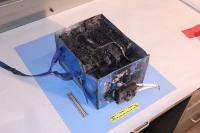
The National Transportation Safety Board (NTSB) issued two safety recommendations Tuesday physically separate lithium batteries from other flammable hazardous materials stowed on cargo aircraft and to establish maximum loading density requirements which restrict the quantities of lithium batteries and flammable hazardous materials.
-
-
Passengers on trans-Atlantic flights will spend more time in the air as a result of climate change
Planes flying between Europe and North America will be spending more time in the air due to the effects of climate change, a new study has shown. By accelerating the jet stream — a high-altitude wind blowing from west to east across the Atlantic — climate change will speed up eastbound flights but slow down westbound flights, the study found. The findings could have implications for airlines, passengers, and airports.
-
-
Faster airport lines with facial recognition
More and more people are travelling by plane, so automating airport security checks makes sense. The use of biometric features is a way to identify people at airports. New technology detects and tracks you from the second you arrive at the airport until you’re out of the arrivals hall at your destination.
-
-
Airlines could – and should – learn more from near misses
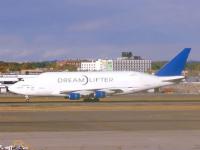
When it comes to flight safety, U.S. airlines are pretty good at learning from accidents. But new research shows airlines should be learning more from accidents that never happen. A new study finds that airlines are flying past an opportunity to increase safety by ignoring too many “near misses.”
-
-
DHS extends deadline for Real ID-compliant driver’s licenses

DHS on Friday announced that air travelers who are residents of several states which are yet to meet the Real ID federal security standards would still be able to use their driver’s licenses at U.S. airports until 22 January 2018. From that point on, if the traveler’s state does not yet offer a Real ID-compliant driver’s license, the passenger would be required to present an alternative identification document such as a passport. Five state and American Samoa were not given the extension, and must become compliant by January 2018.
-
-
ISIS can now use decommissioned shoulder-fired anti-aircraft missiles
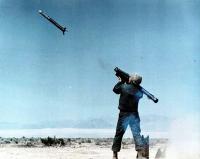
Weapon experts say that ISIS engineers have developed advanced new weapon systems capable of shooting down passenger jets. Different terror groups have had access to these missiles since the 1970s, but experts note that storing such systems for long periods of time requires the development of thermal batteries to power the missiles when they are taken out of storage and into the field. Developing such batteries and maintaining them requires advanced knowledge.
-
-
Israeli Jewish passengers demand removal of Arab Israeli passengers from flight
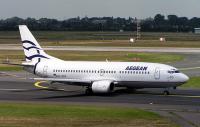
Israeli Jewish passengers on an Aegean Airlines flight from Athens to Israel had asked Greek security officials to remove two Arab Israeli passengers from the airplane because these two passengers looked “suspicious.” The police was called to examine the two Arab Israelis’ papers and luggage, and check their names against European terrorist watch-list. The police found nothing unusual, but the Jewish Israeli passengers insisted on the removal of the two Arab Israelis, and the two accepted the captain’s offer to stay one more night in Athens at Aegean Airline’s expense.
-
-
TSA may now deny travelers’ requests for pat-downs instead of body scanners
The Transportation Security Administration (TSA) on Wednesday announced changes to traveler security screening at airports, allowing TSA personnel to require travelers to go through body scanners even if the passenger prefers a full-body pat-down instead.
-
-
San Bernardino mosque may be reason for barring British Muslim family from entering U.S.

Muhammad Mahmood, 47, who is a U.S. citizen and who a runs a car repair shop in San Bernardino, California, speculated that the reason his two brothers, their wives, and their children — all of them British citizens – have been barred from entering the United States to visit Disneyland was that he prays at the same mosque where one of the San Bernardino shooters, Syed Farook, used to pray.
-
-
TSA cuts to the PreCheck program will make security lines longer
Thanksgiving weekend was a busy one for the Transportation Security Administration (TSA), but holiday travelers passed through airports’ security linesrelatively quickly. In the coming Christmas and New Year traveling period, the cutbacks to the PreCheck lanes as well as the increasing number of passengers using air travel will both contribute to security lines growing longer.
-
-
Tijuana airport’s bridge-connected terminals straddle U.S.-Mexico border
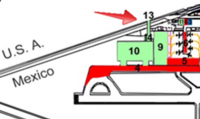
The Tijuana airport is only the second airport in the world straddling an international border, with terminals on each side of the U.S.-Mexico border. Before the bridge opened, travelers had to drive a rental car or be driven in shuttle buses for about fifteen minutes to a crowded land crossing, where they often had to wait several hours to enter San Diego by car or on foot. On the new airport bridge, it takes passengers five minutes to walk to a U.S. border inspector.
-
-
More than 500 travelers to U.S. flagged daily for “national security concerns”
U.S. Customs and Border Protection (CBP) data show that every day, hundreds of travelers going through airports, seaports, and land border crossings are flagged for “suspected national security concerns.” In 2014, the average daily number of those flagged for national security concerns was 548.
-
-
Man uses stolen boarding pass to get through Utah airport security
A man who had stolen a boarding pass which was left by mistake on a Southwest Airline counter, managed to get through airport security in Salt Lake City, but was stopped at a gate for a flight to California. The attendants at the boarding gate became suspicious since the woman for whom the boarding pass was printed had been given a replacement pas and had already checked in.
-
More headlines
The long view
New Technology is Keeping the Skies Safe
DHS S&T Baggage, Cargo, and People Screening (BCP) Program develops state-of-the-art screening solutions to help secure airspace, communities, and borders
